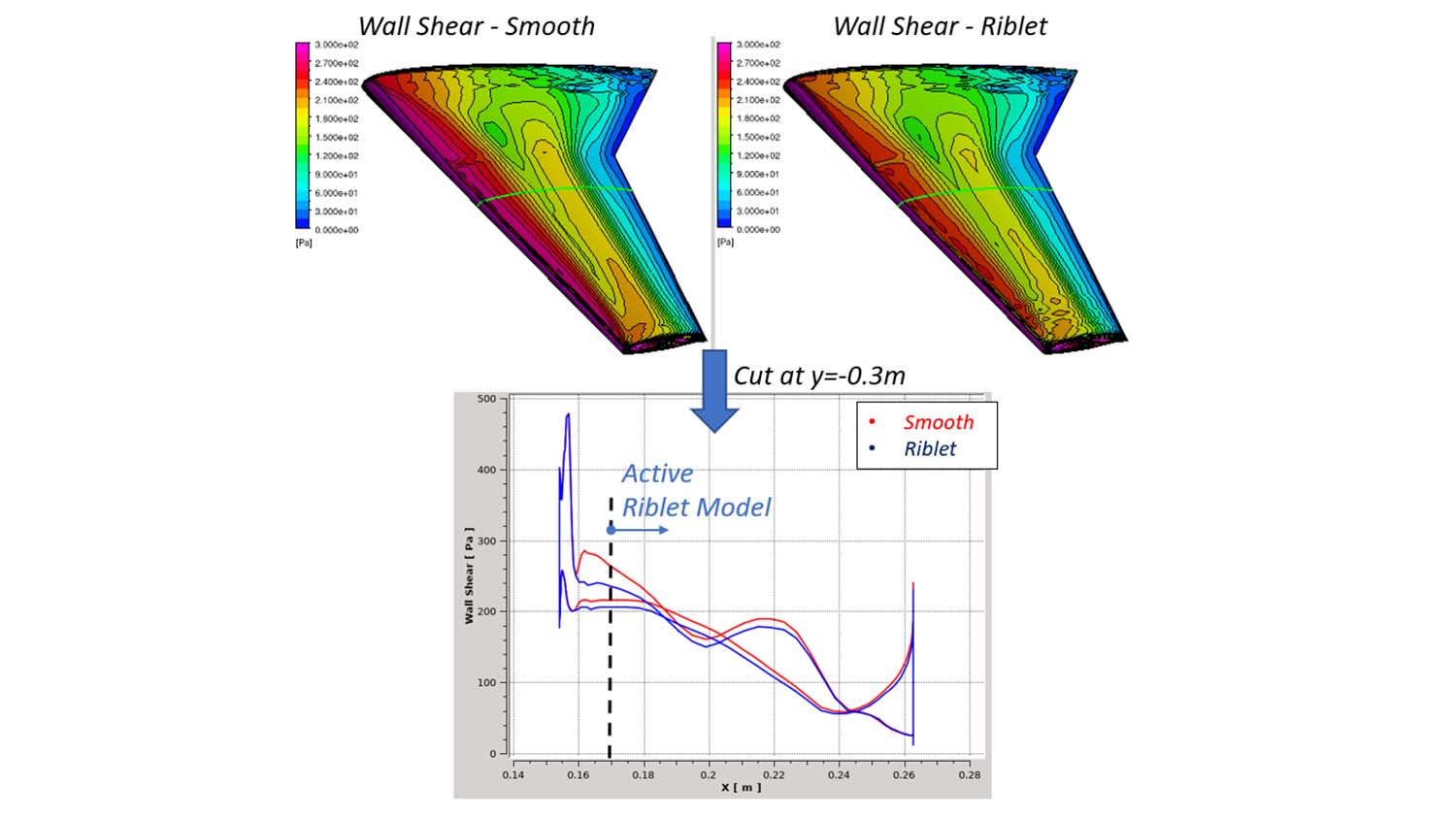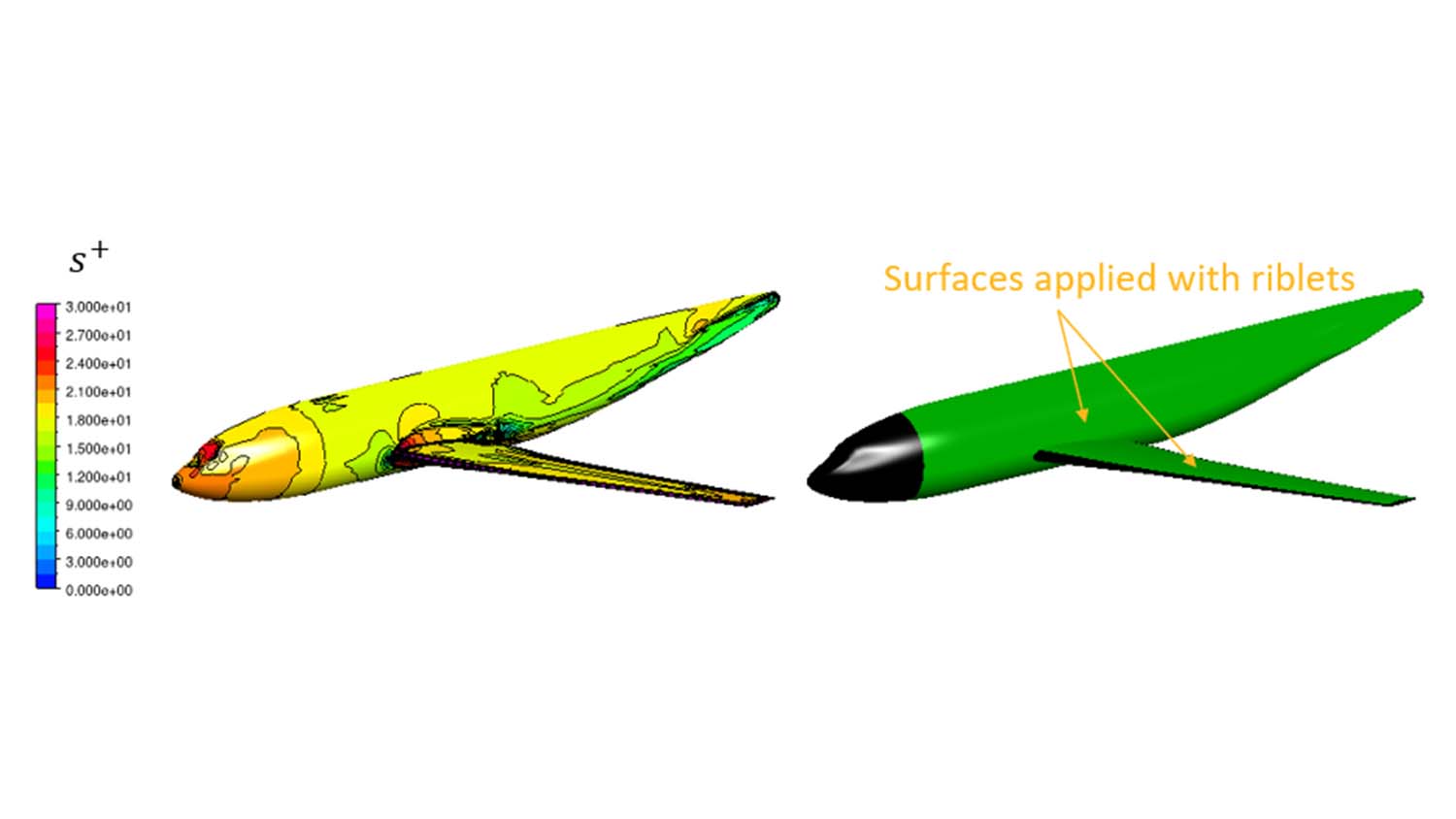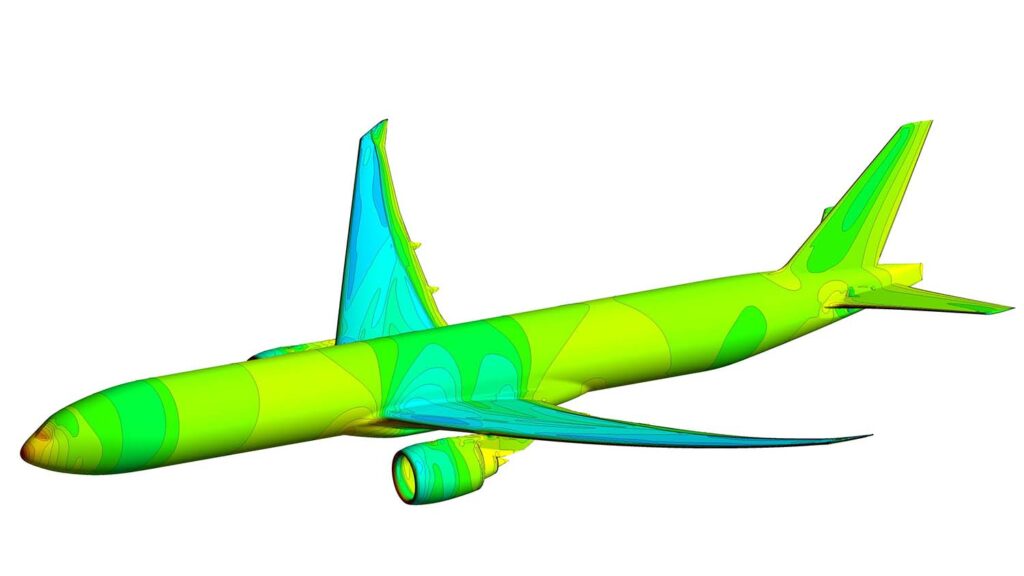Inspired by shark skin, AeroSHARK is a biometric coating technology developed by Lufthansa Technik thanks to the simulation capabilities offered by Ansys, that aims to make the aviation industry more sustainable
As the most carbon-intensive mode of transportation and one of the leading contributors to climate change, aviation has posed significant challenges and it has been targeted by environmental activists all over the world, who call for stricter regulations and faster technological innovation.
In a quest to make air travel more sustainable, Lufthansa Technik has partnered with Ansys, to develop AeroSHARK, a biomimetic coating technology that mimics shark skin to significantly reduce fuel consumption and carbon dioxide (CO2) emissions.
By leveraging Ansys’ cutting-edge computational fluid dynamics (CFD) and high-performance computing (HPC) technology, Lufthansa Technik has successfully designed and certified AeroSHARK, marking a major breakthrough in the aviation industry.
As the name suggests, the coating has was inspired by shark skin and features a subtle ribbed texture, known as riblets, resembling the placoid scales found on shark skin. These riblets help sharks effortlessly navigate through water by reducing drag and friction while increasing buoyancy.

Lufthansa Technik and BASF collaborated to analyse turbulent flow phenomena surrounding the riblets, ensuring they would generate the desired effect. Ansys‘ CFD capabilities were instrumental in simulating and verifying the aerodynamic performance of the riblets.
To build, validate and carry out simulations tests for the virtual prototypes of AeroSHARK, Lufthansa Technik utilised Ansys’ simulation tools.
Through comprehensive aerodynamic simulations, these prototypes were further refined and tailored. The ability to simulate the entire aircraft, including in-flight behaviour, allowed Lufthansa Technik to reduce the reliance on physical flight tests, thereby minimising risks and significantly shortening the time required for certification.

AeroSHARK has been certified by the European Union Aviation Safety Agency (EASA) and the American Federal Aviation Authority (FAA) for two types of Boeing 777 aircraft. Currently, Swiss International Air Lines (SWISS) and Lufthansa Cargo are operating AeroSHARK on their fleets. Once all the Boeing 777Fs at Lufthansa Cargo and the 777-300ERs at SWISS have undergone the AeroSHARK modification, the Lufthansa Group said its carbon footprint will be reduced by over 25,000 tonnes annually.
“AeroSHARK can significantly contribute to more sustainable air transport,” says Lufthansa Technik senior engineer Stefan Kuntzagk.
“With the ability to model aircraft and aerodynamic behaviour in a predictively accurate, robust, and computationally efficient manner by using Ansys’ simulation solutions, we can enhance and expand our shark-inspired technology to make entire subfleets more climate-friendly, reduce fuel consumption, and decrease CO₂ emissions for commercial aircraft.”
“We are constantly amazed by the creativity of our customers, and Lufthansa Technik has elicited the same reaction with its trailblazing AeroSHARK coating technology, which has the potential to significantly reduce fuel consumption and CO2 emissions,” said Walt Hearn, Ansys senior VP of worldwide sales and customer excellence.
“Our customers continue to demonstrate what is possible when Ansys’ simulation solutions are combined with ingenuity and vision. As more sustainable propulsion systems are still being researched and tested, innovations like AeroSHARK are pivotal in the immediate reduction of aviation’s carbon footprint.”
Today, because of successful simulation-powered testing, Lufthansa Technik says that 40% of the aircraft can already be covered by AeroSHARK with plans to extend its coverage to other areas of the plane.
Lufthansa Technik’s collaboration with Ansys and the development of AeroSHARK demonstrate the power of simulation-driven innovation in revolutionising the aviation industry. By emulating the remarkable properties of shark skin, this biomimetic coating technology is paving the way for more sustainable air travel.






